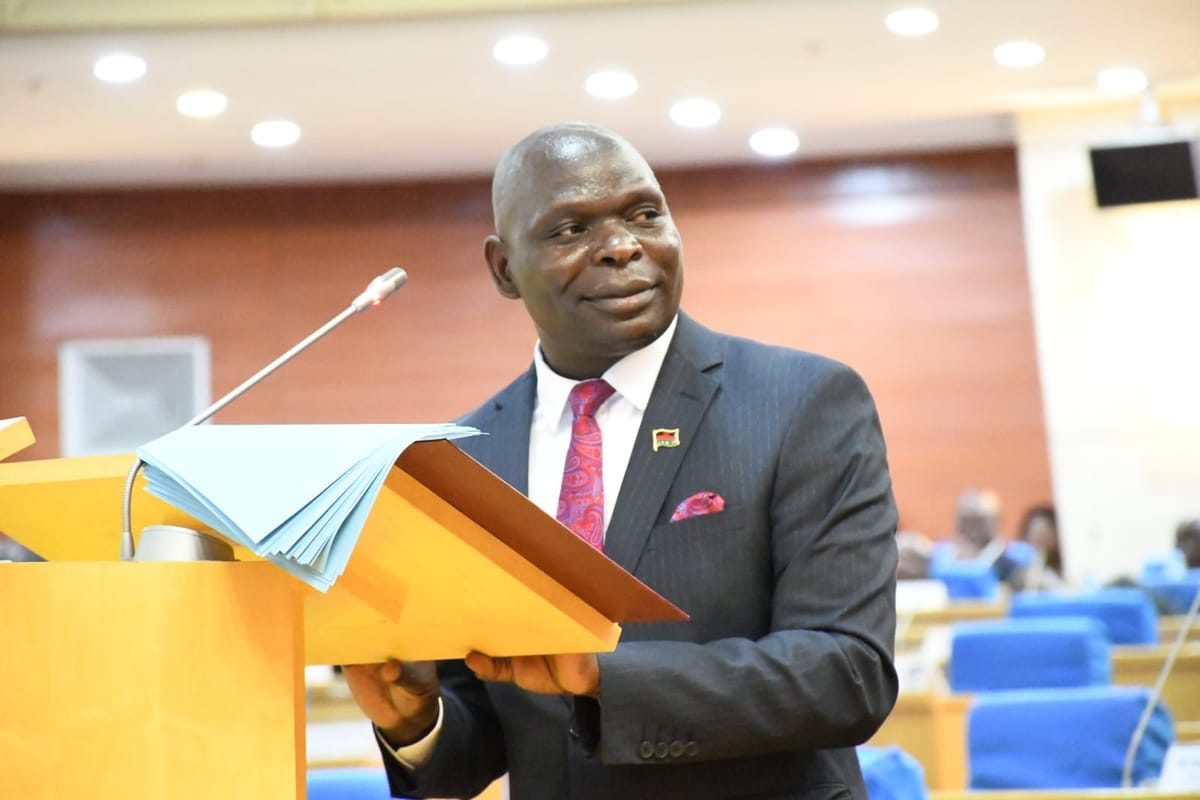Budget gets K40bn boost - Nation Online

Source: The Nation Online
Author: Grace Phiri
Malawi has received a $23 million (about K40.2 billion) boost in direct budget support from the African Development Bank (AfDB), which economic analysts say could ease pressure on the fiscus.
The support has come about six months into the implementation of the four-year $175 million (about K306 billion) Extended Credit Facility (ECF) with the International Monetary Fund (IMF).
Both Minister of Finance and Economic Affairs Simplex Chithyola Banda and Secretary to the Treasury Betchani Tchereni yesterday confirmed the disbursement.
The minister said the AfDB support will mainly go towards the agriculture sector and that it was induced by the ECF.
He said the funds would be channelled towards food production, value addition and improving the regulatory framework.
Said Chithyola Banda: "[Direct] budget support hasn't been there for the past 13 years. When we said give us time and the benefit of the doubt to work on the economy, this is what we meant.
"We have more donors, including the World Bank, United Nations Development Programme, the European Union [EU] and several others, who have made commitments and very soon, we will be announcing another budget support deal worth millions of dollars."
He said his ministry will in due course publish a list of all budget support commitments made to Malawi.
In a statement yesterday, AfDB country manager Macmillan Anyanwu emphasized the significance of the timely support.
He said: "This budget support operation is timely, as it comes when Malawi is facing unprecedented macroeconomic challenges.
"We encourage the government to ensure effective implementation of the programme to help tackle some of the binding constraints to commercialisation of agriculture and increasing agricultural productivity."
Meanwhile, economic analysts have described the support as a relief as it has come at a time the economy is facing rising fiscal pressure due to the recent weather shocks.
Economics Association of Malawi acting president Bertha Bangara Chikadza said the budget support will boost the country's foreign exchange position.
She said: "You know the country is struggling to raise resources to fund the current budget and any assistance no matter how small, will ease fiscal pressures.
"In addition, on the monetary side, since it's coming in dollars, it will add to the foreign exchange buffers for the country."
On his part, Scotland-based economist Velli Nyirongo said while the injection is unlikely to fully address the country's fiscal challenges, the support is a valuable complement to the ECF programme and alleviates the pressure on government finances.
He said considering the current economic climate and the impact of recent weather events, the funds can be strategically directed towards social safety nets.
"The timing of this AfDB support, coinciding with Malawi's tobacco season, is particularly advantageous in stabilising the kwacha. As a vote of confidence from AfDB, let's hope other partners will follow this goodwill," said Nyirongo.
Treasury hopes the ECF programme, sealed last November, will unlock more than $240 million (about K420 billion).
Malawi has already secured more than $457 million (about K776 billion) worth of grants and loans from its multilateral and bilateral donors to be disbursed over four years.
On the project support that has been officially announced, Treasury got a $77 million (about K131 billion) grant from the German Government and a combined $380 million (K646 billion) from the World Bank which includes $60 million (K102 billion) specifically for de-risking the purchase of critical imports such as fuel and fertiliser.
The country also received financial support pledges from the EU worth about 117 million euro (about K213.18 billion) of which, 60 million euro was to be frontloaded into the economy to cushion against the 44 percent kwacha devaluation and 57 million euro will be channelled to the education sector as direct budget support.
Donors such as the World Bank, the EU, Norway and the United Kingdom, under what was called the Common Approach to Budget Support, stopped providing direct budget support to Malawi in September 2013 following revelations of Cashgate, the plunder of public resources at Capital Hill through inflated invoices, payment for goods and services not rendered or delivered and fraud.
The development left Malawi with a 40 percent hole in the recurrent budget and about 80 percent in the development budget as the donors opted to channel resources in form of off-budget mechanisms largely via international non-governmental organisations.



